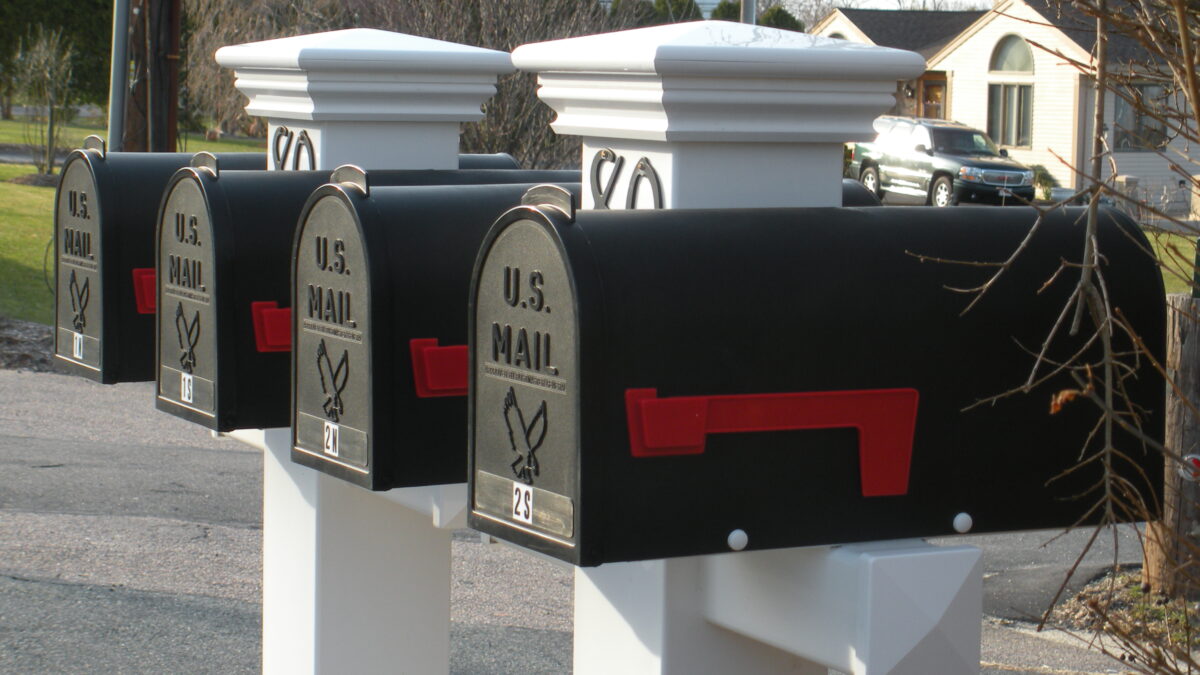Letter to the Editor: More on the flaws in our voter rolls
Dear Editors
Re: Letter to the editor relating to Delco elections
Where we last left off, we identified nearly 12,000 voter registrations belonging to individuals who, according to SURE, ERIC, and USPS NCOA data, no longer resided in Pennsylvania. When we asked Delaware County to remove these ineligible voters from receiving MIBs and requested that any mail-in ballots cast by them be set aside until post-election verification, we received correspondence indicating that they would not accede to our requests.
What, we wondered, is the next logical step? A separate project by the Election Research Institute (ERI), Restoring Confidence in PA Elections, focused on encouraging these registrants, who had moved out-of-state, to cancel their PA registration on their own. This initiative involved sending a friendly letter informing the person that he/she is still registered in PA and including the official “Voter Request to Cancel Registration” form required to cancel their registration in PA, along with a return envelope addressed to the county. Through this program, the near 12,000 registrants in Delco, and thousands of others across the state of PA who had been identified as having filed a permanent change of address with the United States Postal Service indicating they have moved out of PA but remain on PA voter rolls, were sent hand-written envelopes and hand addressed letters by volunteers in the hope they would take it upon themselves to cancel their registration. The results of this project, while largely successful, resulted in unjust, unforeseen complications that require a more detailed future summary.
We took a different approach. When we explored individuals on the list of 12,000 registrants that had moved out of state, we found that many had not yet registered to vote in their new state, and may not yet have been legally considered out of state residents. Instead, we focused on hundreds of Delco residents whose cross-referenced voter data showed they were dually registered in other states, a clear indication of voter ineligibility.
We did not, however, want to take the data provided to us at face value; there was enough fake news roaming the internet that we wanted any claims we made to be irrefutable. So we searched names from the few states who make voter registration rolls publicly accessible. We took current screen shots on government sites showing the current registration of individuals in both Delco and these other states. In addition, screen shots from the Delco site demonstrated that these individuals were approved to receive mail-in ballots. We attached this documentation to correspondence addressed to the Delco County Council dated September 19, 2024.
In our letter we stated we, “discovered that the Delaware County Board of Elections has approved mailing absentee or mail-in ballots to individuals who reside in other states,” and said that this appears to be in direct violation of Section 1300 (25 P.S. § 3146.1), which, “outlines the eligibility criteria for absentee and mail-in ballots, specifically stating that they must be issued only to qualified electors who are residents of the county where the ballot is requested.”
We asked that Delco:
“* Investigate the issuance of absentee and mail-in ballots to individuals who are not qualified electors of Delaware County, as defined by Section 1300 (25 P.S. § 3146.1) of the Pennsylvania Election Code.
* Determine whether these actions constitute a violation of Pennsylvania Election Code or any other relevant election laws.
* Take appropriate legal action to prevent further violations and ensure that all election processes adhere to the laws and standards set forth by the Commonwealth of Pennsylvania.”
Yet we do not want to mislead readers and likely Delco residents into believing that out-of-state registered voters were the only anomalies hidden within our safe and secure voter rolls; it was simply the first we chose to address in our correspondence. A further review of the Delaware County voter rolls raised a veritable armada of red flags waving in the breeze. These included: Use of P.O. boxes and insufficient residence information for voter registration, issuance of MIBs to voters without verified ID, lack of transparency in UOCAVA/UMOVA voter tracking, discrepancies in MIB reporting, absentee ballots from unregistered voters, unregistered voters receiving MIBs, and lack of safeguards in the online voter registration system.
Let’s begin again with our pet, Fido, who could theoretically list a street intersection as an acceptable residence. While Fido might be able to sleep on the sidewalk, he cannot, unless possibly if he were a miniature Chihuahua, sleep in a P.O. Box, and just like for your taxes, PA does not permit you to provide a P.O. Box as your primary voting residence. Yet, while Pennsylvania law (25 Pa.C.S. § 1329(a)) requires a residence address, many voters listed P.O. boxes as both their mailing and registration address. For example, multiple names were found registered at P.O. Box 5001 (Glen Mills School), P.O. Box 311 (Gradyville Road), and P.O. Box 95 (Station Road). Additionally, broad, non-specific addresses were used at universities like Villanova, Haverford, and Cheyney, without room or unit numbers.
In response to our inquiries regarding P.O. Box and non-specific addresses, Delco stated: “At Villanova or Haverford, we have to register and then seek and add a dorm/unit. The same goes for Glen Mills School.” This sounds good, but why is it, when many voters registered as early 2016, there is still no reference to a dorm/unit in their registration data. If this process is followed, then there should be a recording of this data within the public record. More importantly, it is the responsibility of the registrants to enter the correct, accurate, and complete information as required by 25 Pa.C.S. § 1329(a). It is also the duty of the Delaware County Board of Elections to ensure that voter registrations are compliant with the law before approving mail-in ballots. Even Delco acknowledged it is not sufficient to have a general mailing address without clear specificity regarding the individual’s residence. Yet, if registrants are required to provide dorm or unit numbers at Villanova, Haverford, or Glen Mills School, this information should be included at the time of registration, to prevent the unlawful issuance of MIBs or unlawful voting at the polls. If Delco has interpreted that it is Delco’s responsibility to reach out to to provide additional help to registrants who have improperly filled out their applications, under what laws do they undertake those actions and based on what criteria do they decide when to help certain registrants and when to reject the applications of other registrants?
And, calling Fido back for discussion, aside from proof of his Delco residency, there should be proof that he is an American canine, and not a German Shepard visiting from the EU. According to the cross registration of the October 24, 2024 PA MIB Data file and the October 21, 2024 SURE Full Voter Extract, 306 MIBs were issued to voters without legally required identification and 77 of these ballots were identified as returned and marked with a ‘pending’ status. We explained in our correspondence with Delco that, “Pennsylvania law is clear regarding the requirements for voter registration and the issuance of MIBs. Specifically, under 25 Pa.C.S. § 1328, an applicant for voter registration must provide valid identification to be considered fully registered. Until this identification is provided and verified, the applicant cannot be considered a qualified elector under 25 Pa.C.S. § 1301(a). Furthermore, under 25 P.S. § 3146.8, only qualified electors who are properly registered are eligible to receive or cast mail-in or absentee ballots. The issuance of MIBs to individuals whose voter registrations remain incomplete due to a lack of validated ID violates these legal requirements. The law does not allow for the possibility of retroactively validating ID after ballots have been issued or submitted. Additionally, it is important to note that any attempt to verify identification after the voter registration deadline has passed would violate the provisions of 25 Pa.C.S. § 1326(b), which mandates that the registration of electors must be completed at least 15 days before the election. Any ballots received from voters who failed to provide valid ID by the voter registration deadline are therefore ineligible and should not be counted.”
These concerns related to ID verification were later raised in correspondence regarding the lack of safeguards in the online voter registration system. Pennsylvania’s online voter registration system allows individuals to register using a general location instead of a verifiable residential address, creating a vulnerability for fraudulent registrations by individuals from other states or countries. A comparison to Arizona’s Motor Vehicle Division error (which registered 218,000 voters without proof of citizenship) raised concerns that Pennsylvania’s system could face similar issues and a request was made to set aside MIBs and absentee ballots received from individuals whose citizenship is unverified until confirmation is provided. This concern was substantiated in our last letter, where we noted that over 14,000 individuals voted on Election Day without a verified ID in the SURE system—though somehow, all of these Delco residents did have their IDs verified concurrently days after the election was over.
Our search of the MIB database brought absentee ballots, their close cousin, into focus. We identified several individuals marked as having returned absentee ballots with a ‘vote recorded’ status, yet they did not appear in the FVE voter registration list. Delaware County indicated that these unlisted voters were categorized as UOCAVA (Uniformed and Overseas Citizens Absentee Voting Act) or UMOVA (Uniform Military and Overseas Voters Act) voters. While we do not discount their response, how does Delaware County ensure these ballots are reconciled and canvassed properly if the voters are absent from the SURE system? Additionally, Delco did not explain why 80+ Delco voters residing in the U.S. received MIBs despite not appearing in the FVE database or being UOCAVA/UMOVA voters.
These searches of online public election registration data related to MIBs next found significant inconsistencies between Delaware County’s reported MIBs and Pennsylvania’s state data. On November 5th, final MIB ballot tallies on Delco’s website, net of cancellations, showed 94,045 ballots sent and 89,632 ballots recorded, while the PA Secretary of State website showed 99,004 ballots sent and 87,363 ballots returned. This mismatch raises questions about the integrity of the data flow and requires explanation. There was also a noticeable lack of transparency regarding MIBs dropped off at pop-up vote centers, as well as the source of the drop box return counts reported by the county.
What began as an investigation of potential out-of-state voters on our voter rolls led to large-scale concerns about the accuracy of voter registration data, improper issuance of MIBs, and failures in verification procedures. Each letter we wrote respectfully requested specific corrective actions, including immediate investigations, ballot rejections where necessary, and enhanced transparency in voter registration and election reporting, and while we received some return correspondence, no action was taken by Delco regarding our requests. Furthermore, the voter rolls represent only a data set, entered into the much larger labyrinth of the election machine, an apparatus whose every component part is equally in need of overhaul and restoration. It is this election machine whose component parts we next endeavored to explain.
Respectfully,
L. Lewis
Delco Election Deep Divers



